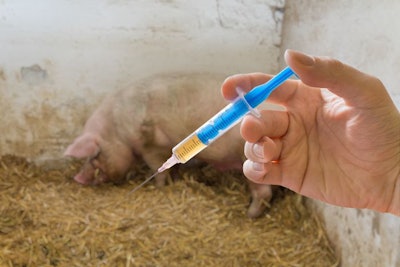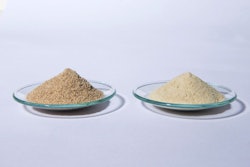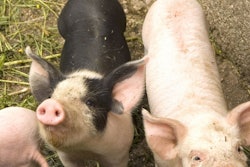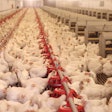
Use of nanoparticle vaccine could stop the spread of evasive PEDv mutations more effectively
A relatively new kind of vaccine technology may be able to improve our ability to prevent the spread of porcine epidemic diarrhea virus (PEDv) — and potentially other kinds of viruses as well.
The U.S Department of Agriculture (USDA) has awarded US$630,000 to a research team at Virginia Tech and the Virginia-Maryland College of Veterinary Medicine, to be used over the next four years to develop a new vaccine for porcine epidemic diarrhea virus. Unlike conventional vaccines, this new solution won’t be made from the virus itself — and that may make it more effective against PEDv, and cheaper to manufacture.
“Porcine epidemic diarrhea virus has been posing a significant economic threat to pig farmers and pork production in the U.S. since 2013. Currently, commercially available vaccines against PEDv are not effective, according to an expert review panel,” said Hongda Chen, national program leader for Bioprocess Engineering and Nanotechnology at USDA’s National Institute of Food and Agriculture, in a statement. “The review panel concluded that this is a very well-structured proposal aiming at solving the urgent issue in the swine industry by designing a nano-based vaccine technology.”
Like other coronaviruses, PEDv tends to mutate rapidly, which makes it difficult to prevent with conventional vaccine technology, according to Mike Zhang, a professor of biological systems engineering in Virginia Tech’s College of Agriculture and Life Sciences. Vaccines for PEDv exist, but new versions of the virus can easily evade these options.
However, some parts of the virus are more likely to mutate than others. PEDv, like COVID-19, has a “spike” protein that is used to enter and infect host cells, and parts of this protein don’t change as rapidly as other components of the virus, Zhang said. So, like the mRNA vaccines developed to fight COVID, the Virginia Tech team plans to design its vaccine around this spike protein.
Unlike Pfizer and Moderna, though, Virginia Tech does not plan to use mRNA, which contains a form of biological instructions that enable immune cells to recognize the COVID-19 virus. Rather, the research team plans to attach the PEDv spike protein to tiny nanoparticles, which will deliver the proteins and trigger the desired immune response.
If successful, the vaccine will induce immunity against different versions of PEDv with similar spike proteins.
The nanoparticle-based vaccine would also be cheaper to produce, and easier to store and transport, than an mRNA-based vaccine, Zhang said, suggesting it could have benefits for other hard-to-prevent viral diseases in humans and animals.
“If this vaccine against this particular virus is successful,” he said, “I don’t see why we can’t apply the same technology to human coronaviruses.”













